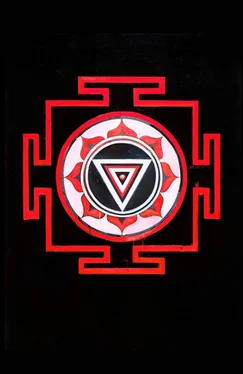You can respect a man’s rights or opinions without knowing the man at all. But you can only respect the man himself when you find something in him that’s worthy of the word.
Farid didn’t look up to Sanjay, and it was clear that others on the Council felt the same way. I’d never looked up to Sanjay, but still I worked for him, under the protection of the Company that bore his name.
It was a matter of conscience for me, and perhaps for some of the others, but the erosion of authority was everything for Sanjay. Every gang is a totem of respect. Every leader is a portrait of faith.
Where was the rain? I felt dirty: beat up and dirty. I was falling. Everything was falling: everything but the rain. My heart was a hostage, somewhere, and I was writing the ransom note.
The world of weeks ago, when I’d left for Goa, was navigating by different stars. A weakened leader, propped up by Afghan guards, a fourteen-year-old boy, Tariq, dreaming of the power to command killers and thieves, the morning torture with the word Pakistan , Lisa, Karla, Ranjit: nothing was the same, and nowhere looked the same.
I was lost. And dirty. And beat up. I had to find my way. I had to stop falling. I turned my back on Sanjay’s mansion and rode away, pushing another raft of hope into that little ocean of minutes, my life.
There was a note from Lisa on the kitchen table when I returned home. It said she’d missed me, and was going shopping with our friend, Vikram. She suggested that we should meet later, back at the apartment.
Relaxing for the first time since Vishnu’s men picked me up, I locked the door and leaned against the wall. It didn’t last long. I slid down the wall and sat on the floor.
It was still early. I’d forged three passports, been kidnapped, beaten, and debriefed, and it was still only two in the afternoon.
I’ve known friends who’ve gone through beatings, and don’t miss a step. I never learned to take the hits so easily. I could keep it inside and hold the line for as long as it took me to find a safe place, but as soon as I closed a sheltered door, the avalanche always began. And it took a while, that day, to get my heart under control, and stop my hands from shaking.
I had a shower, scrubbing at the cuts on my face and neck with a bristle brush and strong disinfectant. The wounds were clean, no small matter in a tropical city, but they began to bleed again. I drowned them in aftershave.
As the pain burned white dots in the space before my eyes, I filed it away for future reference: when the reckoning with Danda the moustache guy came, I had to remember to bring aftershave.
Bruises and welts were appearing in every place that Danda’s bamboo cane had struck. It was a forensic match for the marks I’d worn before, in prison: the marks I saw on other prisoners in the shower.
I looked away from the mirror, forcing myself to forget; another prison trick. In twenty minutes I was on my bike again, dressed in clean jeans and boots, a red T-shirt and my cut-off vest.
I rode along beside the fishermen’s coves to the Colaba Back Bay, to keep the appointment in the slum.
The land everywhere around me had been reclaimed from the sea, stone by stone. Tall, modern apartment buildings crowded together on the new stone ocean, and showered precious shade on wide, leafy streets.
It was an expensive, desirable area, with the President hotel as a figurehead on the prow of the suburb. The little shops that lined the three main boulevards were freshly painted. Flower boxes decorated many of the windows. The servants who moved back and forth from the residential towers to the shops were dressed in their best saris and bleached white shirts.
As the main road swung left and then right beside the World Trade Centre, the scene changed. The trees became more sparsely planted, and then stopped altogether. The shade began to fade as the last shadow cast by a tower surrendered to the sun.
And the heat from that sun, hovering, obscured by heavy clouds, beat down on the dust-grey ocean of the slum, where the ridges of low rooftops rolled away to the tattered horizon in ragged waves of worry and struggle.
I parked the bike, took the medicines and bandages from the saddlebags, and tossed a coin to one of the kids who offered to watch the bike for me. There wasn’t really a need. No one stole anything in that area.
As I entered the slum, making my way along a wide, sandy, uneven path, the smell of the open latrine that lined the road flattened the breath in my lungs. A fist of nausea twisted my stomach.
The beating in the warehouse came back hard and fast. The sun. The beating. The sun was too hot. I staggered to the side of the path. The surge of nausea erupted and I stooped, my hands on my knees, and threw up anything I still had inside onto the weeds beside the road.
The children of the slum chose that moment to rush out of the lanes to greet me. Crowding around me as I shuddered and shivered, they tugged at the sleeves of my shirt and shouted my name.
‘ Linbaba! Linbaba! Linbaba! ’
Pulling myself together I allowed the children to drag me with them into the slum. We worked our way through the narrow, stumble-foot lanes between huts made from plastic sheets, woven mats and bamboo poles. The huts, covered in dust accumulated through eight months of the dry season, looked like desert dunes.
Gleaming towers of pots and pans, garlanded images of gods, and smooth, highly polished earthen floors glimpsed their way through low doorways, attesting to the neat, ordered lives that persisted within.
The children led me directly to Johnny Cigar’s house, not far from the seashore boundary.
Johnny, who was the head man in the slum, was born on the streets of the city. His father, a Navy man on temporary assignment in Bombay, had abandoned Johnny’s mother when he learned that she was pregnant. He left the city on a warship, bound for the Port of Aden. She never heard from him again.
Cast out by her family, Johnny’s mother had moved into a pavement-dweller settlement made from sheets of plastic strung across a section of footpath near Crawford Market.
Johnny was born in the day-long shout, shove and shuffle heard from one of Asia’s largest covered markets. His ears rang from early morning until last light with shrill or braying cadenzas of street sellers and stallholders.
He’d lived the whole of his life in pavement communities and crowded slums, and only ever seemed truly at home in the surge and swirl of the crowd. The few times I’d seen him alone, walking the strip of sea coast beside the slum, or sitting in a lull of afternoon outside a chai shop, he’d seemed diminished by the solitude; withdrawn into a smaller sense of himself. But in any crowd, he was a jewel of his people.
‘Oh, my God !’ he cried, when he saw my face. ‘What the hell happened to you, man?’
‘It’s a long story. How you doin’, Johnny?’
‘Oh, shit, man. You got a solid pasting!’
I frowned at him. Johnny knew that frown. We’d lived together as neighbours in the slum for eighteen months, and had continued as good friends for years.
‘Okay, okay, thik hai , baba. Come, sit down. Have some chai. Sunil! Bring chai! Fatafat! ’ Super quickly!
I sat on an empty grain drum, watching Johnny give instructions to a team of young men, who were making final preparations for the coming rain.
When the previous head man of the slum retired to his village, he nominated Johnny Cigar as his successor. A few voices grumbled that Johnny wasn’t the ideal choice, but the love and admiration everyone felt for the retiring head man silenced their objections.
It was an honorary position, with no authority beyond that contained within the character of the man who held it. After almost two years in the job, Johnny had proven himself to be wise in the settlement of disputes, and strong enough to inspire that ancient instinct: the urge to follow a positive direction.
Читать дальше












